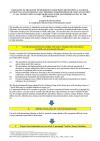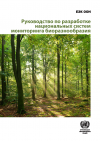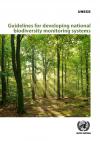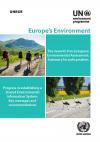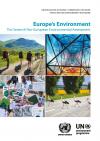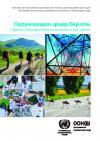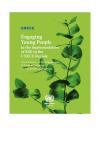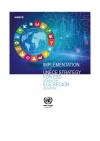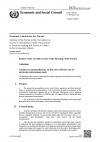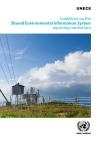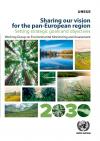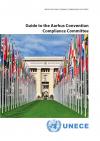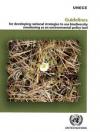Publications
Displaying Results 1 - 20 of 79
- English
- Pусский
In December 2022, at its fifteenth meeting, the Conference of the Parties to the Convention on Biological Diversity adopted the Kunming-Montreal Global Biodiversity Framework
, including a monitoring mechanism.
This guidance on the development of national strategies for the use of biodiversity monitoring helps to make biodiversity
monitoring a practical tool for environmental policy. The
- English
In December 2022, the resumed fifteenth meeting of the Conference of the Parties to the Convention on Biological Diversity adopted the Kunming-Montreal global biodiversity framework, including a monitoring framework.
The present Guidelines for developing national strategies to use biodiversity monitoring help make biodiversity monitoring a practical tool for environmental policy. The guidelines
- English
At the Seventh Environment for Europe Ministerial Conference, held in Nur-Sultan in 2011,Ministers decided to develop the Shared Environmental Information System (SEIS) across the region of the United Nations Economic Commission for Europe (ECE). At the Eighth Conference, in Batumi, Georgia, in 2016, Ministers welcomed progress in developing SEIS to support a regular process of environmental
- Français
Cette évaluation est le fruit de la collaboration entre le secrétariat de la Commission économique des Nations Unies pour l’Europe (CEE) et le Programme des Nations Unies pour l’environnement (PNUE), en coopération avec de nombreuses organisations partenaires et divers experts. Le Groupe de travail de la surveillance et de l’évaluation de l’environnement de la CEE a été chargé de diriger le
- English
The assessment is the result of a collaboration between the secretariat of the United Nations Economic Commission for Europe (ECE) and the United Nations Environment Programme (UNEP), in cooperation with numerous partner organizations and individual experts. The ECE Working Group on Environmental Monitoring and Assessment was tasked with leading the process of consultation on the regular pan-
- Pусский
Оценка является результатом сотрудничества между секретариатом Европейской экономической комиссии ООН (ЕЭК) и Программой ООН по окружающей среде (ЮНЕП) в сотрудничестве с многочисленными партнерскими организациями и отдельными экспертами. Рабочей группе ЕЭК по мониторингу и оценке окружающей среды было поручено возглавить процесс консультаций по регулярной общеевропейской экологической оценке.
- English
This publication provides an overview of good practice programs and initiatives aimed at supporting and empowering youth participation in education for sustainable development (ESD) and in the implementation of the UNECE Strategy for ESD in its member States. It includes best practices, theoretical articles on youth participation and methodologies to support inclusion of youth in ESD and
- English
This evaluation report provides a summary of the progress, challenges and achievements of the Economic Commission for Europe (ECE) member States from 2017 to 2019 in implementing the UNECE Strategy for Education for Sustainable Development (ESD). The report reviews the data collected through national implementation reports submitted by member States at the end of the fourth phase of the Strategy'
- English
The updated Recommendations on the more effective use of electronic information tools (ECE/MP.PP/2021/2/Add.2) were prepared through an open and participatory consultation process
- English
The availability of integrated, relevant, high-quality, timely and easily accessible environmental information provides the means for assessing environmental status and the foundation for meaningful and informed environmental governance. Timely, relevant, reliable and easily accessible environmental information is also essential to efforts to inform citizens about the quality of their environment
- English
The UNECE Working Group on Environmental Monitoring and Assessment has been engaged in efforts to make environmental monitoring an effective instrument in policymaking and, in particular, to assist countries of Eastern and South-Eastern Europe, the Caucasus and Central Asia. UNECE member States, with the support of the secretariat, have made significant progress in establishing the Shared
- English
Ten Years of the UNECE Strategy for Education for Development - Evaluation report on the implementation of the UNECE Strategy for Education for Sustainable Development from 2005 to 2015. This evaluation report summarises the progress, challenges and achievements of ECE member States from 2005 to 2015 in implementing the UNECE Strategy for ESD. The report reviews
- Pусский
ECE/CEP/176
- English
Available in English and in Russian (not laid out). (ECE/CEP/176, 44 pp.)
This publication contains guidelines to help make biodiversity monitoring a practical tool for environmental policy for countries of Eastern Europe, the Caucasus, Central Asia and South-Eastern Europe. The guidelines offer advice on how to:
Develop plans and strategies for conservation and sustainable use of


